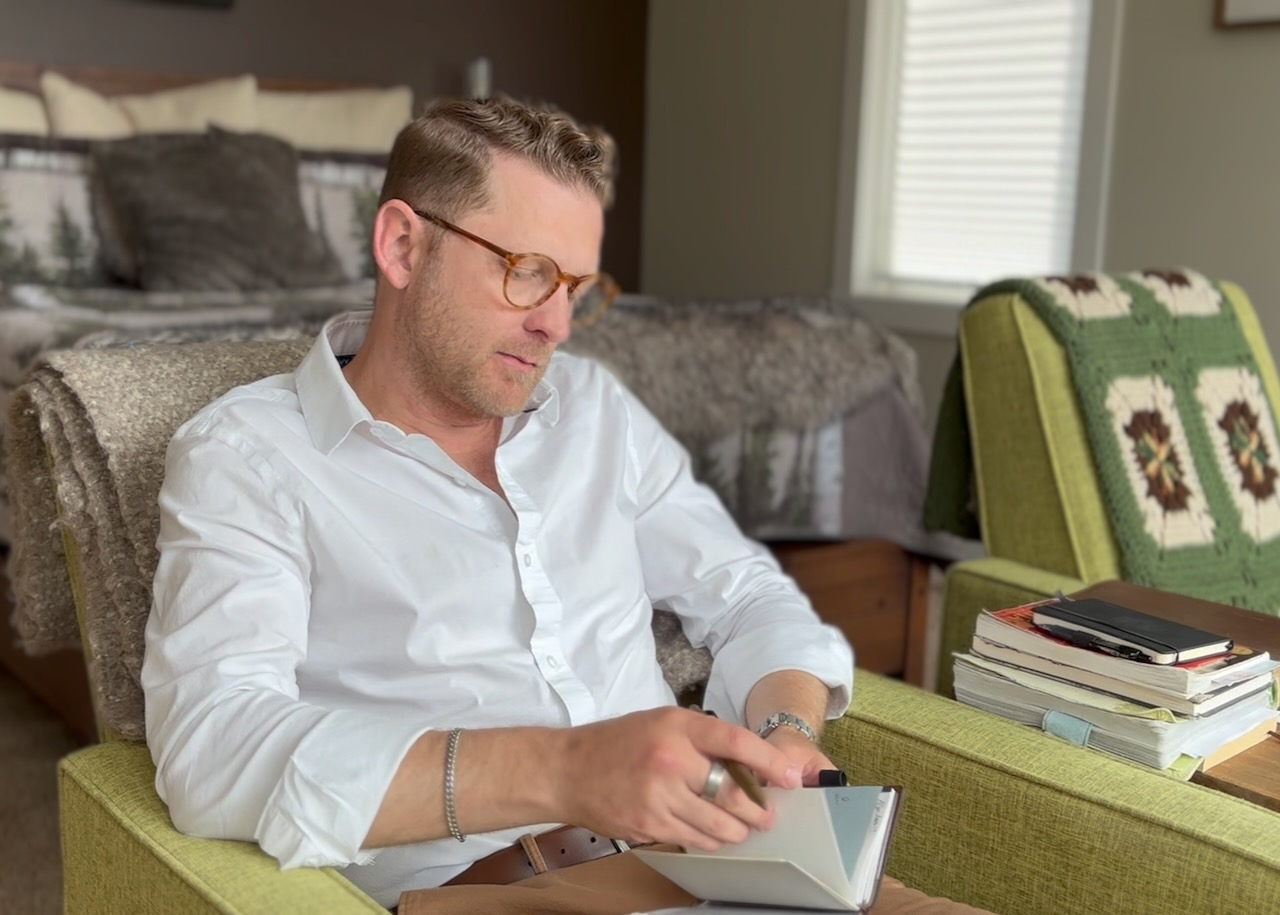In today’s fast-paced world, the practice of regular reflection—whether on the past week or the past year—is often overlooked. Many people are caught up in the daily grind, moving from one task to the next without pausing to consider their experiences, growth, and lessons learned. However, this lack of reflection can have significant negative long-term effects, both personally and professionally. Conversely, consistent reflection can lead to profound personal growth, better decision-making, and a more fulfilling life.

The Inconsistency of Reflection in Modern Life
Despite the clear benefits, the average person is not terribly consistent in setting aside time for reflection. According to a survey by The New York Times, only a small percentage of individuals regularly take time to reflect on their past week or year. This inconsistency can be attributed to various factors, including the demands of modern life, the constant presence of digital distractions, and the societal emphasis on productivity over introspection.
In his best-selling book Deep Work, author Cal Newport argues that the modern obsession with productivity often leaves little room for the deep thinking and reflection that are essential for long-term success and fulfillment. Newport suggests that in a world filled with constant distractions, the ability to reflect and engage in meaningful thought has become a rare and valuable skill.
The Negative Long-Term Effects of Failing to Reflect
When individuals neglect regular reflection, they may face several negative long-term consequences. These can manifest in various aspects of life, from personal well-being to career progression.
Lack of Personal Growth: Without regular reflection, it becomes difficult to recognize areas for personal development. As a result, individuals may continue to repeat the same mistakes or fail to capitalize on opportunities for growth. According to Psychology Today, reflection is key to understanding one’s strengths and weaknesses, which is essential for continuous self-improvement.
Poor Decision-Making: Decision-making is heavily influenced by past experiences. When individuals do not take the time to reflect on their decisions and the outcomes, they miss valuable insights that could inform better choices in the future. Research published in The Harvard Business Review highlights that reflective practice can significantly improve decision-making abilities by allowing individuals to learn from past experiences.
Increased Stress and Anxiety: The absence of regular reflection can contribute to higher levels of stress and anxiety. Without taking the time to process and make sense of past experiences, individuals may feel overwhelmed by unresolved issues and emotions. As noted in Forbes, regular reflection helps to clear the mind, reduce stress, and provide a sense of closure on past events.
Stagnation in Relationships: Relationships require ongoing attention and care. Without reflection, individuals may fail to recognize when a relationship is deteriorating or when it needs more attention. John Mark Comer, in his book The Ruthless Elimination of Hurry, emphasizes the importance of slowing down and reflecting on relationships to ensure they are healthy and fulfilling.
Lack of Alignment with Personal Values: Regular reflection is essential for ensuring that one’s actions and decisions align with their core values. Without this practice, individuals may find themselves drifting away from what truly matters to them, leading to a sense of dissatisfaction and purposelessness. As discussed in The Atlantic, reflection is crucial for maintaining a sense of purpose and direction in life.
The Positive Long-Term Effects of Consistent Reflection
On the other hand, making time for regular reflection can lead to numerous positive long-term effects. This practice can enhance both personal and professional life, leading to greater fulfillment and success.
Enhanced Self-Awareness: Consistent reflection fosters self-awareness by encouraging individuals to examine their thoughts, behaviors, and emotions. This self-awareness is crucial for personal growth and development, as it allows individuals to understand their motivations and identify areas for improvement. According to Psychology Today, self-aware individuals are better equipped to navigate challenges and achieve their goals.
Improved Decision-Making: Reflecting on past decisions and their outcomes provides valuable insights that can inform future choices. As noted in The Harvard Business Review, reflective practitioners are more likely to make informed decisions that lead to positive outcomes. This practice helps individuals learn from their mistakes and replicate their successes.
Reduced Stress and Improved Mental Health: Regular reflection has been shown to reduce stress and improve mental health by providing a sense of closure and helping individuals process their experiences. A study published in Forbes found that individuals who engage in reflective practices experience lower levels of stress and anxiety, leading to better overall well-being.
Strengthened Relationships: Reflection allows individuals to assess the health and quality of their relationships, leading to stronger and more fulfilling connections. By regularly evaluating relationships, individuals can identify areas that need attention and take steps to improve them. John Mark Comer’s The Ruthless Elimination of Hurry emphasizes the importance of reflection in maintaining healthy relationships.
Increased Alignment with Personal Values: Reflective practice helps individuals ensure that their actions and decisions align with their core values, leading to a greater sense of purpose and fulfillment. As discussed in The Atlantic, individuals who regularly reflect on their values and actions are more likely to lead lives that are meaningful and satisfying.
How to Cultivate a Habit of Reflection
Given the significant benefits of regular reflection, it’s important to cultivate this practice as a consistent habit. Here are some strategies to help incorporate reflection into your daily or weekly routine:
Set Aside Time for Reflection: Dedicate a specific time each day or week for reflection. This could be at the end of each day, during a quiet moment in the morning, or at the end of the week. The key is to make it a regular part of your routine.
Use a Journal: Journaling is an effective way to reflect on your thoughts, experiences, and emotions. Writing down your reflections allows you to process your experiences and gain insights that you might not have noticed otherwise. The Matters Journaling System is a practical tool that encourages regular reflection on key areas of life, including relationships, personal growth, and well-being.
Ask Reflective Questions: During your reflection time, ask yourself questions such as: What went well this week? What challenges did I face? What did I learn? How did my actions align with my values? These questions can help guide your reflection and ensure that it is meaningful and productive.
Practice Mindfulness: Mindfulness meditation is another way to cultivate reflection. By focusing on the present moment and observing your thoughts and emotions without judgment, you can gain valuable insights into your experiences and behaviors.
Reflect with Others: Sometimes, reflecting with a trusted friend, mentor, or therapist can provide additional perspectives and insights. Discussing your reflections with others can help you see things from different angles and deepen your understanding.
Conclusion
In a world that often prioritizes productivity over introspection, the average person may struggle to find time for regular reflection. However, the long-term effects of neglecting this practice are too significant to ignore. Failing to reflect can lead to a lack of personal growth, poor decision-making, increased stress, and weakened relationships.
On the other hand, consistent reflection can enhance self-awareness, improve decision-making, reduce stress, strengthen relationships, and increase alignment with personal values. By making reflection a regular part of your routine, you can cultivate a more fulfilling and meaningful life.
As noted by thought leaders like Cal Newport and John Mark Comer, taking the time to slow down and reflect is essential for living a balanced and successful life. Whether through journaling, mindfulness, or thoughtful conversation, the practice of reflection is a powerful tool for personal and professional growth.
